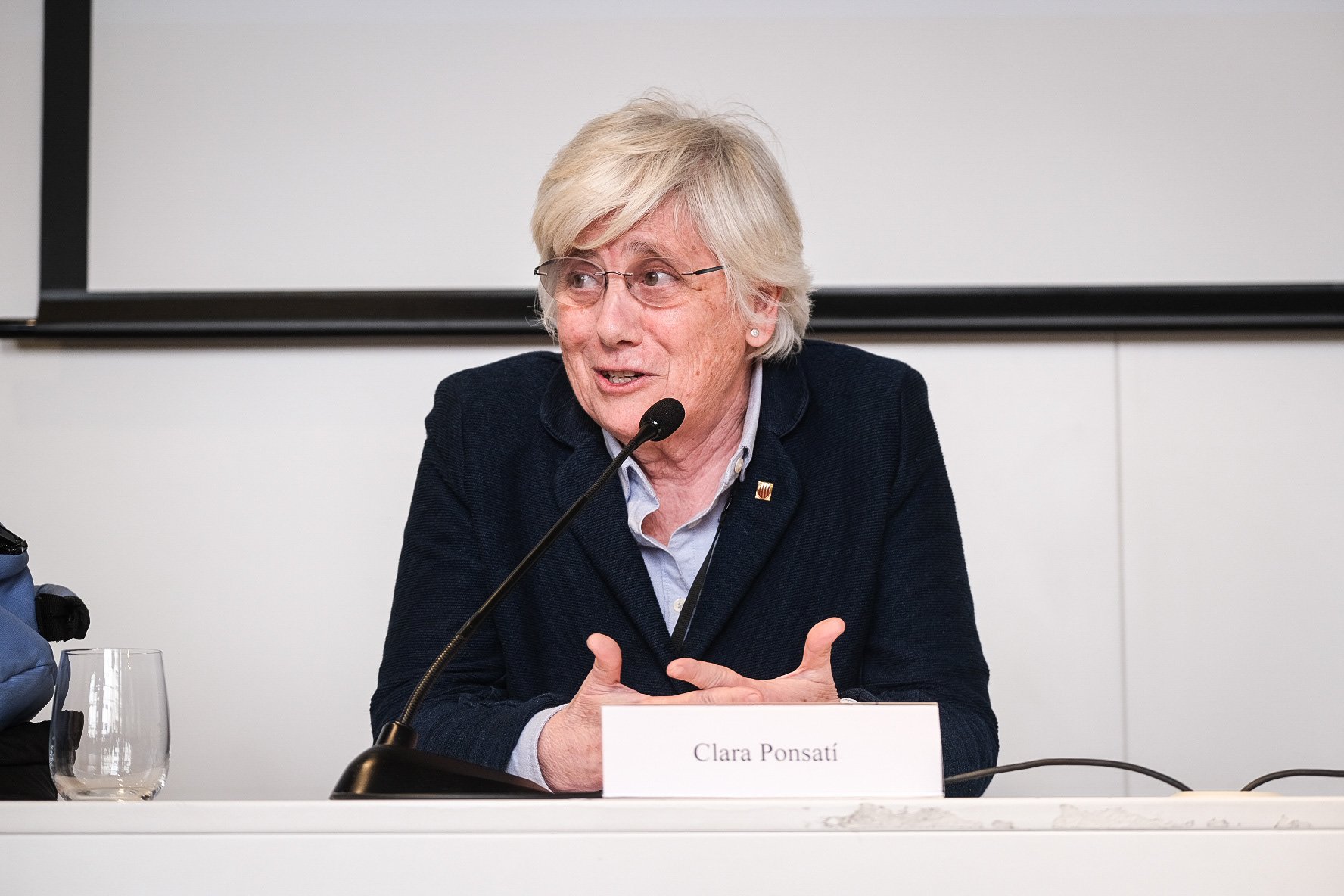"Today it is exactly five years and five months since I went into exile. I told myself that I would not allow the Spanish state to catch me without asserting myself against them", explained Clara Ponsatí as she took the floor at the press conference that she offered at Journalists Association of Catalonia, in Barcelona, after entering Spain by car from Perpinyà, thus putting an end to her exile. The current MEP and former education minister in Carles Puigdemont's Catalan government at the time of the 1st October independence referendum explained that she has not come to make "any type of deal with the state" but to "continue the fight and face up to them". And she affirmed that she does not know what the reaction of the Supreme Court will be to her return.
Ponsatí had been in exile since October 2017, when she left with other members of the Catalan government for Brussels, four weeks after the 1-O referendum. During this time she has lived in Scotland, teaching at the University of Saint Andrews where she is a professor, and in Brussels, where she has held her seat as an MEP for the Junts party since February 2020. The ex-minister returned from exile after the repeal of the Spanish offence of sedition, with Spanish justice now prosecuting her only for the offence of disobedience.
A blue backpack
At the Journalists Association, her lawyer, Gonzalo Boye, and the president of Junts, Laura Borràs, were present to follow her appearance. Ponsatí placed on the table the blue backpack with which she returned from Brussels, the same one, she explained, that she had taken with her when she left in October 2017.
Ponsatí denounced that "the persecution of the exiles has been pathetic but persistent", was critical of the reform of the Penal Code which eliminated the crime of sedition, but also against the accusation of disobedience that is made against her. "I have not come to make any deal with the state but to denounce the systematic violation of our rights, the passivity of the Catalan institutions and the need for the European institutions to stop looking the other way", she reiterated as many as three times .
The MEP did not want to make predictions about a possible arrest, nor about the possibility that it will be the Catalan police, the Mossos d'Esquadra, who have to arrest her - "they and their superiors will know if an arrest warrant against a MEP who has immunity is an order that they want to execute or not," she stated.
To live in Barcelona
As for her immediate future, she explained that as long as she is an MEP, her dedication will be to Brussels and Strasbourg. "If in the next few days it becomes clear that I can travel around Spain, Barcelona is my city," he explained.
In any case, she warned that the arrest warrant against her is illegal because she has immunity as an MEP, although she has been skeptical about the European Parliament's response. "In addition, judge Llarena is not the judge competent to hear the case", she stressed.
Criticism of Serret
Ponsatí did not hide her criticism of the way in which the minister Meritxell Serret returned from exile, with a return which was pacted with the Supreme Court. She referred to a "Serret doctrine" that was established by the former exile who now serves as Catalan foreign minister, and warned that this "doctrine" has consequences. "Serret is going around the world and they put up a Spanish flag three times bigger than the Catalan one", she explained ironically, relating to the recent visit of Catalan president Pere Aragonès to Colombia. In fact, she also criticised Aragonès's government, describing its management as a "tool at the service" of the Spanish occupation. She referred to the former CUP deputy Anna Gabriel in similar terms, although stressing that the former far-left MP has refrained from political activity, and thus was left out of the MEP's critique.
Ponsatí explained that the aim of the press conference was to present the website estatdedret.cat, which she described as "an inventory of the judicial persecution against Catalonia, with up to 1000 entries that explain how the Spanish state has violated the rule of law against the Catalans for the last 20 years".

